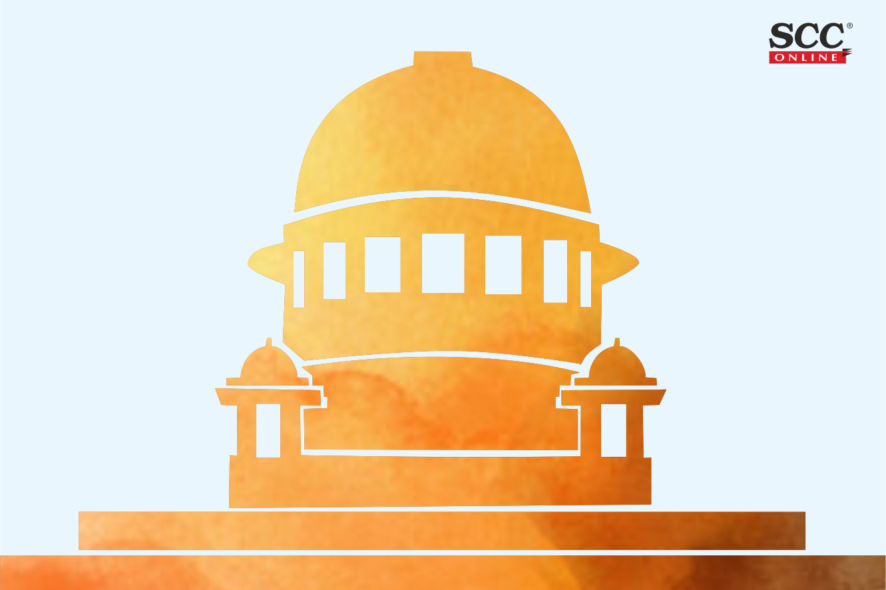Supreme Court: In a divorce proceeding, where a wife had “rejected” all the options for rented accommodation “similar” to her Industrialist husband’s residence, the bench of L. Nageswara Rao and BR Gavai*, JJ has held that the conduct of the wife in firstly, not choosing any house as per her choice and secondly, in rejecting all the properties, which have been identified by the Architect, only on the ground that they are not similar, to say the least is “unreasonable”.
Case Trajectory
- The husband, Industrialist Jaidev Shroff and his wife Poonam, got married on November 27, 2004. However, the relationship between them soured and various cases including the FIRs were filed by both the husband and wife against each other.
- The husband filed a divorce petition in 2015 seeking divorce on the ground of cruelty. He also lodged a complaint making certain serious allegations against the wife, after which she voluntarily left the Pali Hill Bandra residence where the husband and wife residing and went to live at her mother’s residence with her daughter.
- The husband thereafter filed an application seeking an order of injunction restraining the wife from entering the said house. While the Family Court granted an injunction restraining the wife from entering the said house, the Bombay High Court allowed the writ petition filed by the wife.
- The husband, hence, moved the Supreme Court.
- Exploring the possibility of an amicable resolution, mediators were appointed twice. However, both the time, the mediators submitted that it was not possible to resolve the matter.
- On 6 th March 2020, the Supreme Court passed the following order directing the Registrar of the Family Court to engage an architect from the panel of architects maintained by the Bombay High Court for finding out appropriate rented accommodation for the residence of the wife. It is made clear that the residence shall be approximately ‘similar’ to the size of the Pali Hill residence and located as far as possible in Bandra and Juhu area.
- While the Architect gave a list of as many as 17 properties, the wife rejected all saying that none of the properties shown in the list were similar to the said house.
Analysis
On possibility of shared household
The relations between the parties are strained to such an extent that even the efforts made by this Court to arrive at a settlement by personally discussing the matter in Chambers with them, have failed. On two occasions, the Court appointed Mediators but the mediation proceedings could not succeed. In such a situation, to compel the parties to live together in one house, would not be in the interest of either of the parties.
“With the history of such acrimony and filing of criminal cases against each other, such an order, rather than benefiting the parties, would be detrimental to their interests.”
On what would be a ‘similar’ property
To stretch the word ‘similar’ as used in the order dated 6th March 2020, to be totally identical to the said house, would be unrealistic. It will be difficult to find out a house identical to the said house having the same area, the same facilities and the same luxuries. The word ‘similar’ has to be construed as providing the same degree of luxury and comfort as is available in the said house. Hence,
“… the conduct of the respondentwife in firstly not choosing any house as per her choice and secondly, in rejecting all the properties, which have been identified by the Architect, only on the ground that they are not similar and therefore, not in accordance with the order dated 6th March 2020, to say the least is unreasonable.”
On payment of Rs.35.37 lakhs per month by husband
It was argued by Senior Advocate Shyam Divan, appearing for the wife, that the husband is earning hundreds of crores per year, whereas the wife and the daughter have to survive on a meagre amount of Rs. 12 lakhs per month, hence, payment of Rs.35.37 lakhs per month should be paid.
The Family Court, by an elaborate order, after recording the details about the income of the parties, had directed an interim maintenance to be paid to the wife at the rate of Rs. 7 lakhs per month and to the minor at the rate of Rs. 5 lakhs per month.
It was, hence, noticed that if the prayer for payment of an amount is allowed, it will be giving an additional amount to the wife. It will amount to awarding an amount which is much more than the one to which the wife was found entitled by the Family Court.
Order
The Court held that if the wife decides to shift to any of the properties listed by the Architect or if she locates any of the rented premises as per her choice, the husband shall pay the rent of the said premises from the date on which such premises are taken on rent. However, taking into consideration that the highest rent of the properties identified by the Architect is Rs. 30 lakhs per month, the husband would be liable to pay rent to the maximum of Rs. 30 lakhs per month.
Further, considering that the divorce petition has been pending before the Family Court for a period of last 6 years, the Court directed that the divorce petition pending before the Family Court be decided expeditiously so that there can be at least some quietus to the acrimonious litigation pending between the parties.
[Jaidev Rajnikant Shroff v. Poonam Jaidev Shroff, 2021 SCC OnLine SC 1175, decided on 03.12.2021]
Counsels
For wife: Senior Advocate Shyam Divan
For Husband: Senior Advocate Dr. Abhishek Manu Singhvi
*Judgment by: Justice BR Gavai







